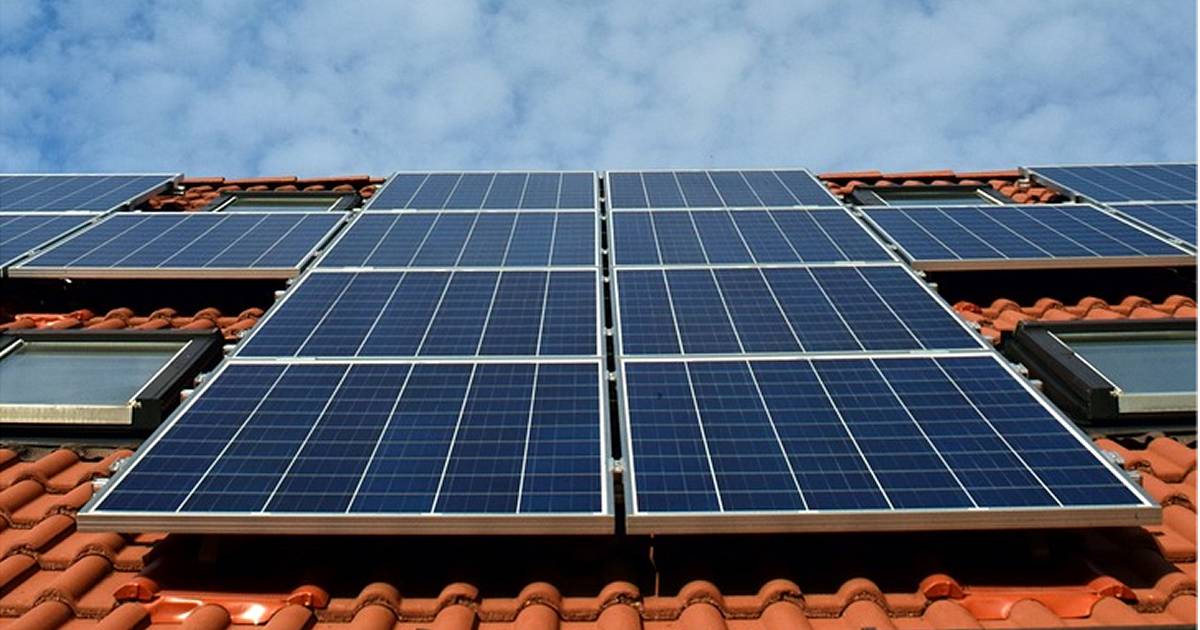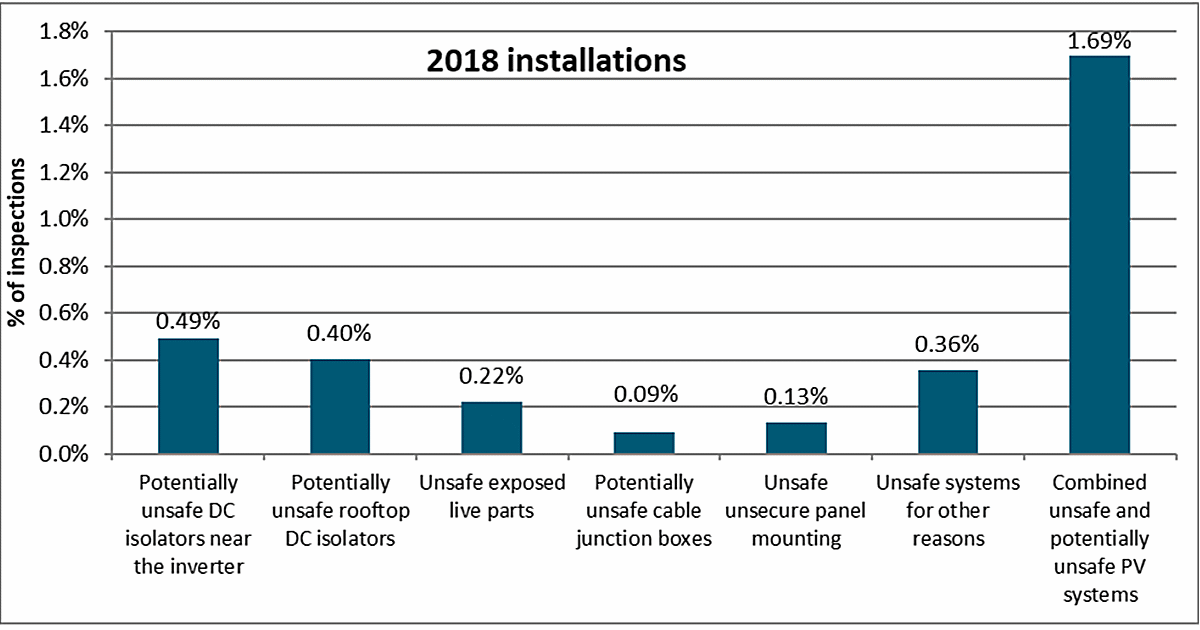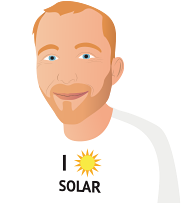
A report released yesterday on electrical safety risks in Australian solar power system installations indicates great improvement, but there’s still work to be done.
Published by Australia’s Clean Energy Regulator, the report is based on analysis of Small-scale Renewable Scheme (SRES) inspection data by Master Electricians Australia (MEA).
The good news is unsafe and potentially unsafe solar power systems combined plummeted from 5.5 per cent of inspections of systems installed in 2015 (0.7 per cent unsafe and 4.8 per cent potentially unsafe) to 1.7 per cent of inspections of 2018 installations (0.7 per cent unsafe and 1.0 per cent potentially unsafe).
While even one unsafe system is too many, the findings indicate solid progress has been made and hopefully this will continue.
The report states the most likely reasons for the improvements are the Clean Energy Council modifying its design and installation guidelines and training in September 2015, as a result of inspection program findings.
“More than one in five Australian households have solar on their roofs, and what this report tells us is that the vast majority of these systems are installed safely and in line with the industry guidelines set out by the Clean Energy Council’s Solar Accreditation program,” said Clean Energy Council Chief Executive Kane Thornton.
Mr. Thornton acknowledged that while the results were encouraging, continued improvement is necessary.
DC Isolators A Problem Child
Mention the term “rooftop DC isolator” to solar installers and they are liable to start cursing. The device is a manually operated switch situated adjacent to a solar panel array that shuts off DC current between the array and the solar inverter. While intended as an additional safety mechanism, water ingress can be a problem and has been a significant safety issue. DC isolators near the inverter can also be subject to water ingress.
The agency’s analysis shows rooftop DC isolators and isolators near the inverter are the most common culprit in potentially unsafe solar power systems – and water ingress is the major cause.

Australia is the only country in the world requiring a rooftop DC isolator – but the requirement is being reviewed, with the Clean Energy Council pushing for an end to it.
The report recommends state and territory governments give consideration to the potential safety risks from the requirements for rooftop DC isolator and isolators beside inverters, and pursue these issues in current reviews of the relevant standards. In the case of the latter, the requirement for a DC isolator situated near the inverter should be changed to require the isolator being inside the inverter – something the Clean Energy Council also backs.
System Maintenance Lacking
The report states many Australian solar owners are not aware of solar power system maintenance recommendations and there are very few subsequent inspections after the initial installation and commissioning of systems. It recommends state and territory governments consider whether any of the recommendations for PV system inspections in AS/NZS 5033 should become compulsory, or educational programs put in place to encourage solar owners to have regular inspections carried out.
The full report can be viewed here.
As in any trade, regardless of how many rules and regulations are in place there will always be mistakes made and shonky operators cutting corners on component and installation quality and safety. As for avoiding the shonks, prospective solar buyers can make a better-informed purchase decision by reading SQ founder Finn Peacock’s The Good Solar Guide, free to read in its entirety online. It’s also a good idea to check out our solar installer reviews to get a better sense of any companies vying for your business.

 RSS - Posts
RSS - Posts



Speak Your Mind